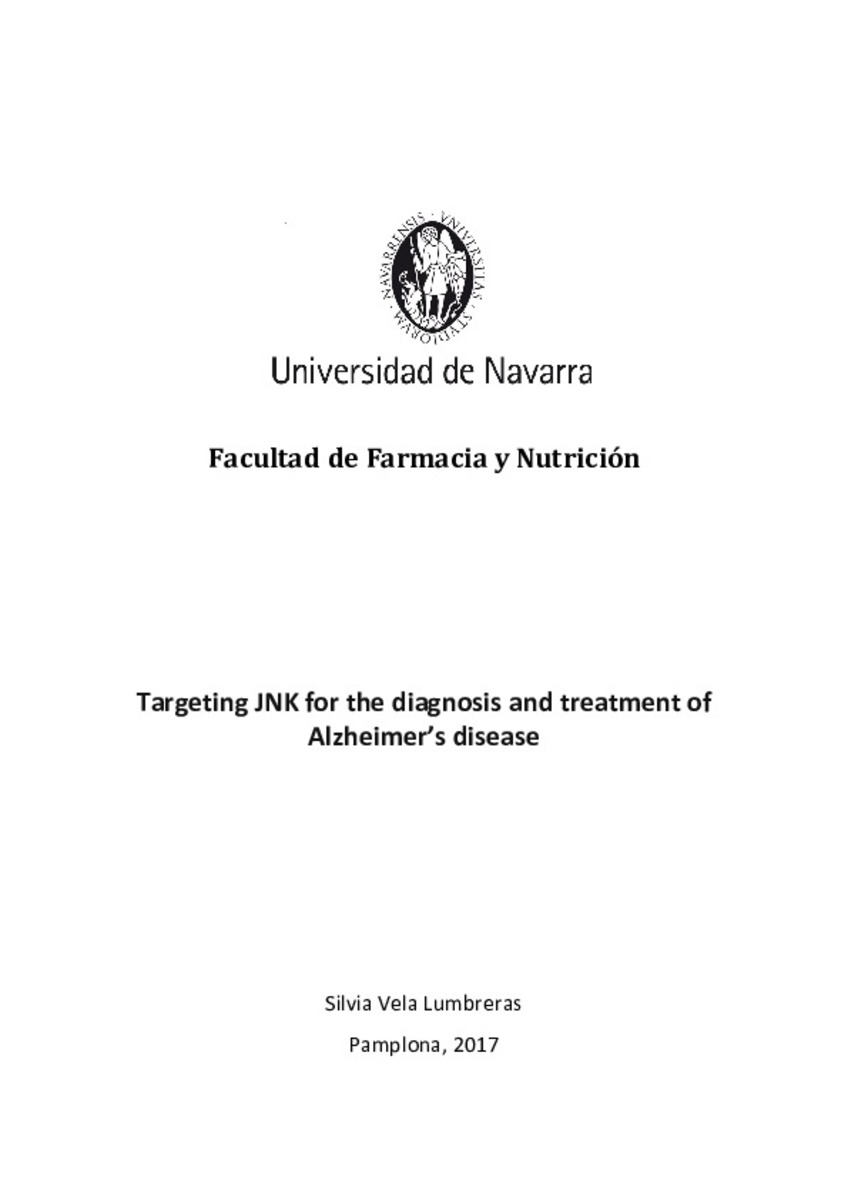Targeting JNK for the diagnosis and treatment of Alzheimer's disease
Palabras clave :
farmacología experimental
neurociencias
Materias Investigacion::Farmacia::Farmacia y farmacología
Alzheimer
Fecha de publicación :
12-abr-2018
Fecha de la defensa:
15-dic-2017
Cita:
VELA, Silvia. "Targeting JNK for the diagnosis and treatment of Alzheimer's disease". Ramírez, M.J. y Sola, M. (dirs.). Tesis doctoral. Universidad de Navarra, Pamplona, 2017.
Aparece en las colecciones:
Estadísticas e impacto
0 citas en

0 citas en

Los ítems de Dadun están protegidos por copyright, con todos los derechos reservados, a menos que se indique lo contrario.







